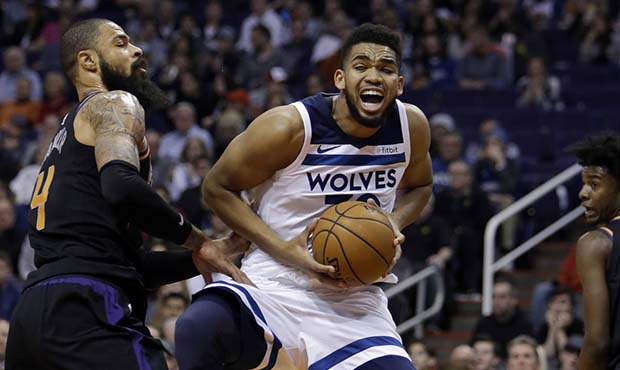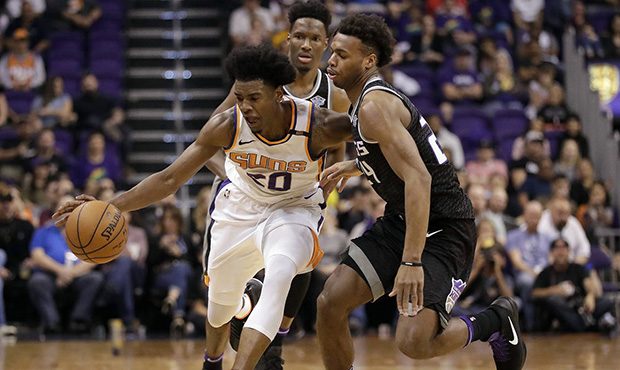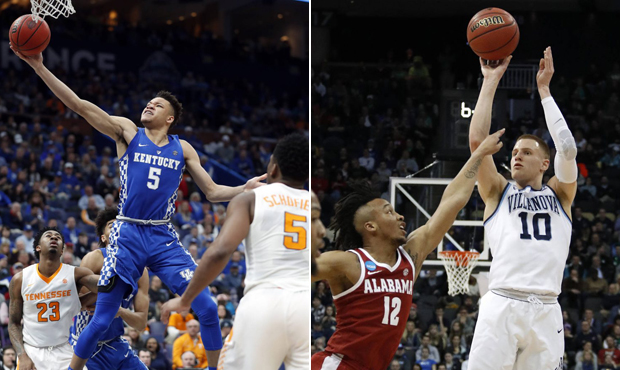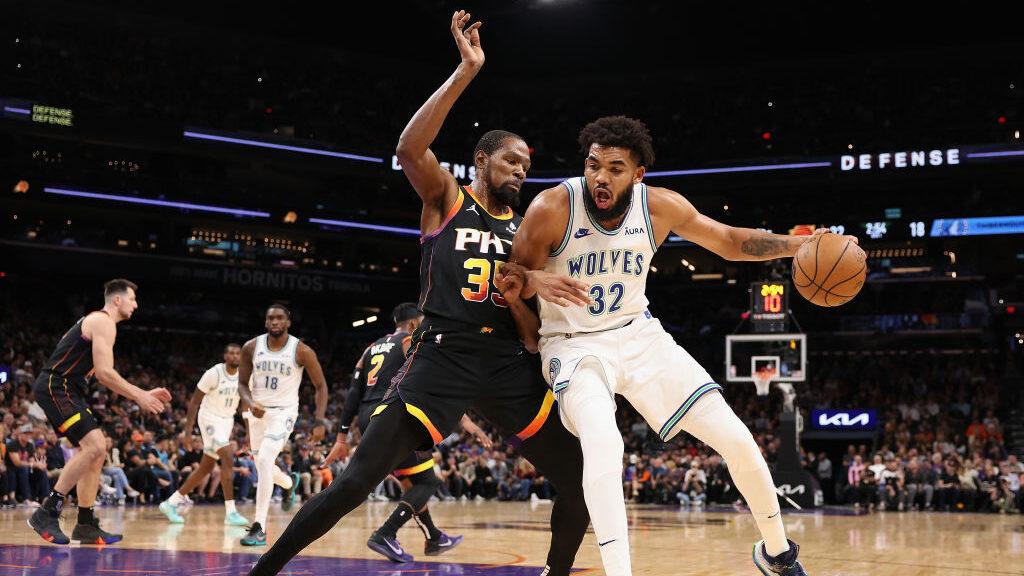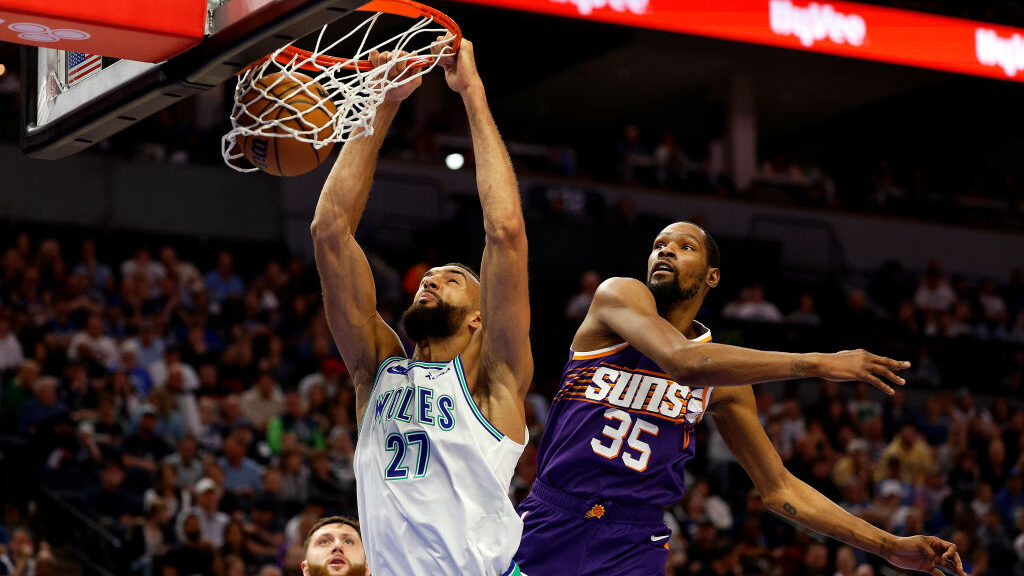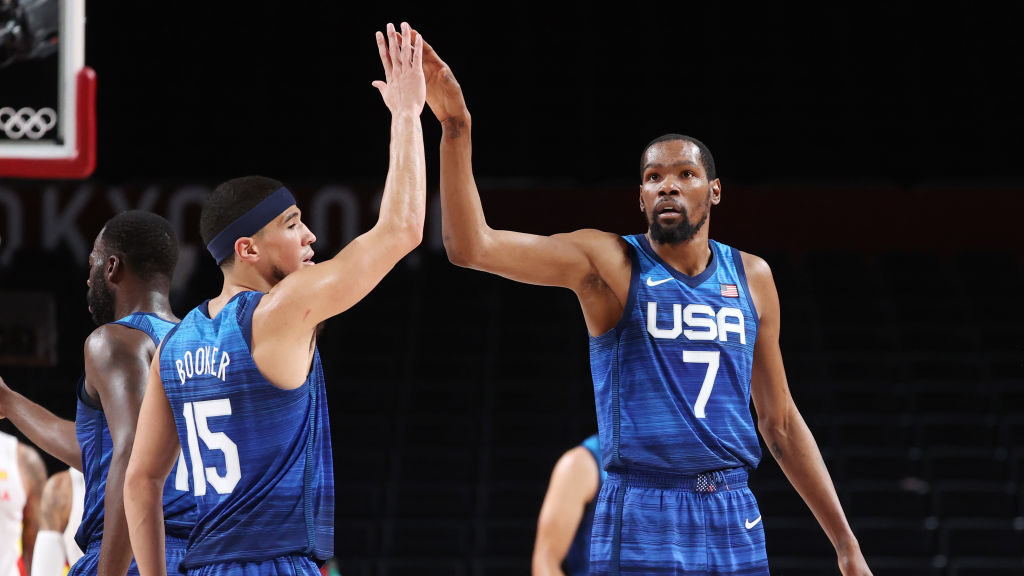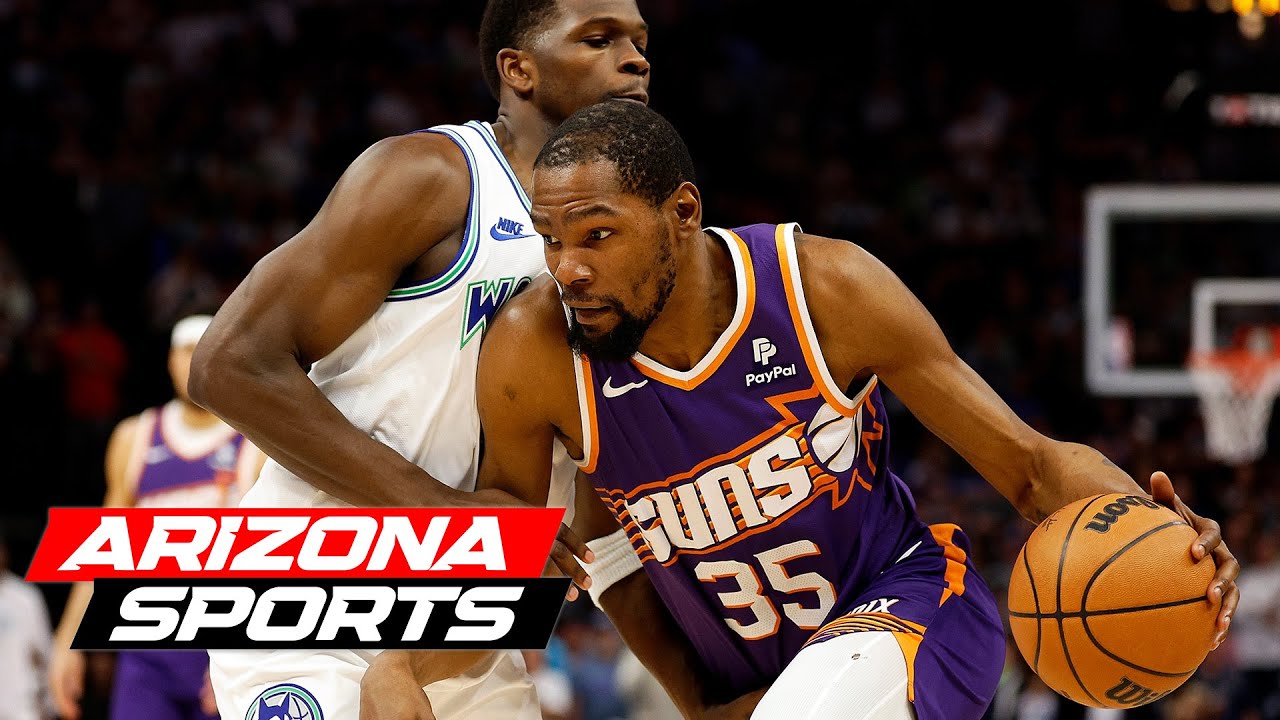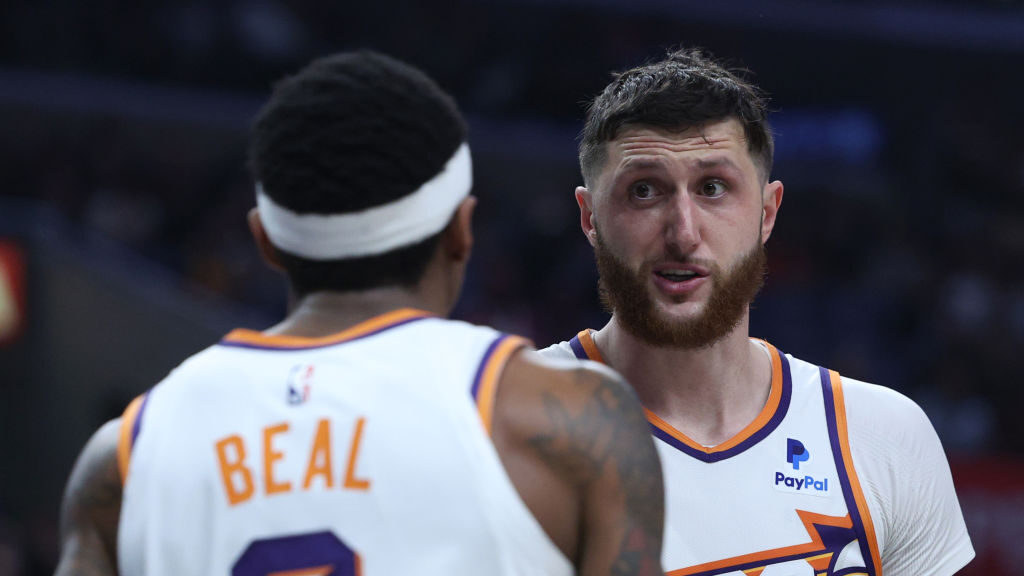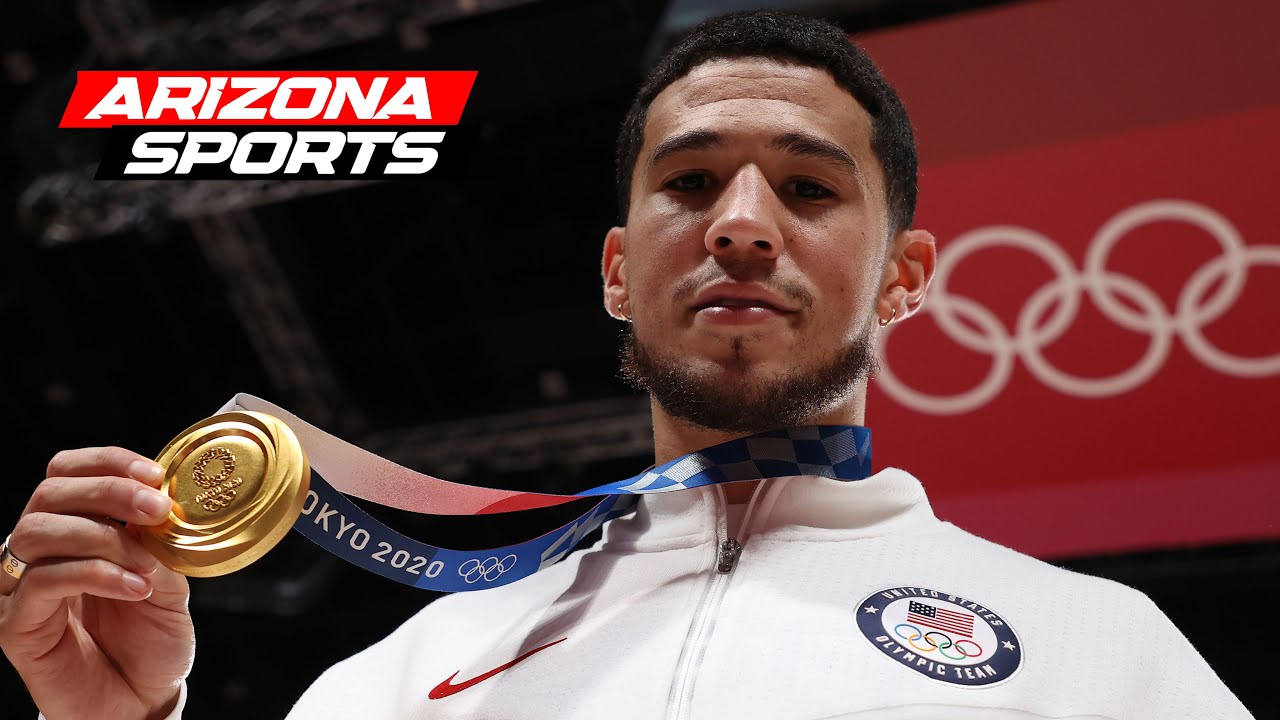Actor Eisenberg takes blame for Suns’ ’93 loss; Majerle blames Ainge
May 22, 2018, 3:15 PM | Updated: May 23, 2018, 8:59 am
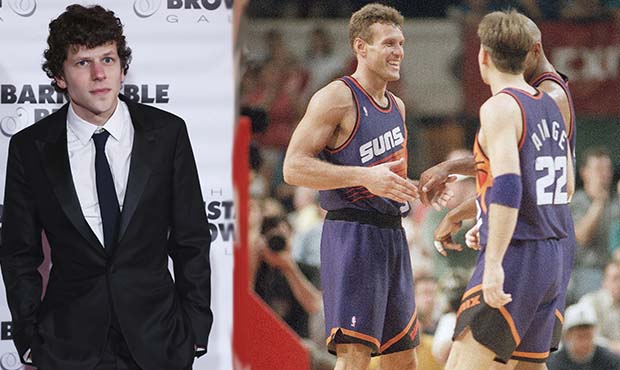
(AP Photos)
(AP Photos)
Actor Jesse Eisenberg, most well-known for playing Facebook founder Mark Zuckerberg in the movie The Social Network, has a confession to make.
He believes a fan letter he wrote as a 9-year-old addressed to Phoenix Suns star Dan Majerle altered the Suns’ franchise history. As in, their championship-lacking history.
On the Upon Further Review with Mike Pesca podcast, Eisenberg paints the picture. A schoolmate, Steven, had been throwing mulch at Eisenberg, so the young Eisenberg decided to ask Majerle, his favorite player, to help him out.
Come to the school, tell Steven to stop throwing mulch and problem solved.
But Eisenberg now realizes that letter might’ve distracted Majerle and the Suns, who were down 3-2 and faced a key Game 6 game against the Chicago Bulls in the 1993 NBA Finals. With Phoenix up by two with 3.9 seconds left, the Suns’ defensive breakdown left sharp-shooter John Paxson wide open for a series-clinching three.
How furious must Majerle, Charles Barkley and the gang have been that Eisenberg was selfishly wanting them to worry about his problems amid a do-or-do playoff game?
Eisenberg feels like it’s all his fault.
But Majerle, after listening to Eisenberg’s podcast, doesn’t agree.
It was Suns guard Danny Ainge’s fault, Majerle told Bickley & Marotta on 98.7 FM Arizona’s Sports Station.
“As I thought about it, what I should have done — back in ’93 — I should have sent Danny Ainge to New Jersey for the mulch problem and that way he wouldn’t have left John Paxson for the wide open three and we would have won a championship,” Majerle said. “I should have sent Ainge back there to take care of the business.”
To refresh your memory, what happened in the final 15 seconds of that fateful Game 6 went like so: Michael Jordan brought the ball past the halfcourt line and found forward Horace Grant well above the three-point arc.
Grant blew past the Suns’ Charles Barkley, but as Grant went for what looked like a game-tying layup, Ainge left Paxson wide open on the wing. Two passes later, the sharpshooter was 20 feet from the closest Suns player.
“I was on the weak side and they threw it into, I think it was Horace Grant, and I just saw Danny leave Paxson to go double him. In the timeout, we said (we can allow) anything but a three,” Majerle said.
“(Paxson) let that thing go and I had a perfect angle. It was straight on-line so I put my hands up like over my head like I can’t believe this is happening.”
Majerle is adamant that the Suns would have won Game 7 had that shot not gone down. And Majerle, who admitted he doesn’t remember Eisenberg’s letter, made sure to pin it all on Ainge — not Charles Barkley, who lost Grant to set up the rotating defense.
“No, no. It was all Danny,” Majerle said. “And then I ride him because (in 1995), I was guarding (Houston’s) Clyde Drexler at halfcourt. For some unknown reason — now Danny Ainge, we all know how smart he is and what he’s doing with the Celtics — for some reason he came running out of the corner to double Drexler, which left Mario Elie open for a wide open three.”
Elie’s shot and ensuing reaction in Game 7 of the 1995 Western Conference Finals was named the Kiss of Death. It’s still regarded as, per the Houston Chronicle this week, arguably the biggest shot in Rockets history.
Anyway, Majerle just wants Eisenberg to know none of that is his fault.
“I wish I could go back and, like I said, help solve his problem,” the current Grand Canyon head coach said. “That butterfly effect, maybe we could have solved a lot of different things and I could have a couple championship rings and never got traded to damn Cleveland.”


